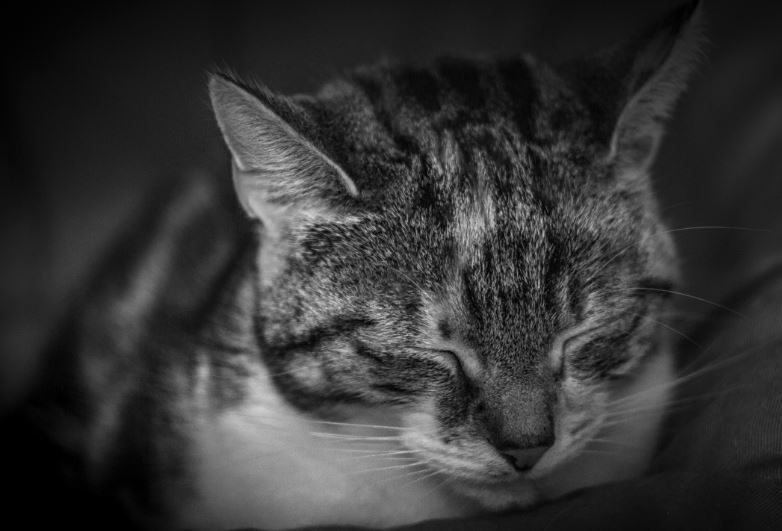
In rare situations, cat sneezes can be an indication of something serious. Pay close attention to your cat if you’re thinking “why is my cat sneezing so much?” so you can determine whether any other symptoms are present. To rule out any significant health issues, you might need to take your cat to a vet.
Cats, like people, can get upper respiratory and sinus infections, as well as other diseases that cause those cute little sneezes. In this article, we’ll tell you all you need to know about your cat sneezing and whether it’s something to worry about.
What Causes Cat Sneezing?
For a number of reasons, it might be surprisingly difficult to diagnose cat sneezing. Your veterinarian must first verify that your cat is indeed sneezing. Sneezing can be mistaken for coughing, gagging, reverse sneezing, hiccupping, retching, and wheezing, and each of these symptoms has a unique set of potential causes.
To help your veterinarian in evaluating whether your cat is indeed sneezing, record the occurrence on camera. The diversity of underlying causes presents another challenge in the diagnosis of cat sneezing.
A cat may sneeze due to infections, chronic inflammation, dental disease, cancer, or inhaling foreign particles. The fact that multiple of these factors are typically present at the same time in cats is another factor that serves to further complicate the situation.
Upper Respiratory Infections
Sneezing in cats is often brought on by an upper respiratory infection. Over 80% of upper respiratory illnesses are caused by feline calicivirus and feline herpesvirus1. Cats frequently contract the feline herpes virus, which is easily spread by direct touch, inhaling sneeze droplets, and sharing food.
Additional signs of an upper respiratory infection in cats include sneezing, eye and nose discharge (clear, yellow, green, or bloody), repeated coughing or swallowing, dehydration, decreased appetite, and fever.
Notably, cats can also get chronic upper respiratory infections, which have symptoms that linger longer and, if ignored, can develop into a chronic bacterial infection. There are a few steps you may take to treat upper respiratory infections and alleviate some of their symptoms.
Keep in mind babies are properly fed and hydrated, and clean the waste from their eyes and nose on a regular basis with warm, moist cotton. Additionally, you might try turning on a humidifier to keep their nasal passages wet.
Vaccinating your cat as a kitten is the greatest way to shield them from being affected by the feline herpes virus. They won’t be totally protected from having it, but their chances will be reduced.
Cat Allergies
Many cats and kittens suffer from allergies, much like people and other animals. Sneezing can be brought on by mold, dust, fragrances, smoking, pesticides, and cleaning materials. Your kitty is most likely reacting to anything in the air if you suspect it has an allergy.
If your cat’s sneeze is more severe than normal, it’s crucial to see a veterinarian. You can attempt to decrease potential allergens in your home, especially in areas where the kitten spends a lot of time. There is a wide range of possible treatments available for cats who suffer from allergies.
Nasal And Sinus Issues
Rhinitis and sinusitis are examples of inflammatory diseases that can affect cats. Sinusitis is an infection of the sinus lining, whereas rhinitis is an inflammation of the mucous membranes of the nose, which we all know as a “stuffy nose.”
These two ailments, collectively known as “rhinosinusitis” in cats, are frequently brought on by upper respiratory infections. Signs of sinusitis and rhinitis in cats, in addition to frequent sneezing, include:
- In mild cases, nasal discharge is clear; in severe cases, it may be yellow, green, or crimson.
- Breathing that is labored, snoring, or mouth breathing.
- Tearfulness with ocular discharge.
- Backward sneezing (clearing the nose through short, rapid inhalations).
- A bump on the nose’s bridge (if fungal).
A nasal flush, broad-spectrum antibiotics to treat or prevent bacterial infections, and a dose of steroids to open the nasal and sinus cavities are all possible treatments. In severe situations, intravenous fluids and nutritional care may also be required.
Dental Diseases
Sneezing in cats can also be brought on by dental disease, especially when it involves bigger areas of the mouth. Sneezing and other respiratory symptoms might be caused by a dental illness that affects the teeth, gums, or even the roof of the mouth.
Serious dental disease in cats may require tooth extractions. Additionally, significant cleaning and treatment may be required to restore their mouth’s health. Find out more about how to treat your cat’s dental condition by speaking with your veterinarian.
Bacterial Infections
Another potential reason why your cat might be sneezing is a bacterial infection. Your cat will have yellow or green discharge coming from their eyes and nose if they have a bacterial infection. A few typical bacterial infections are chlamydia, mycoplasma, and bordetella.
However, your cat’s sneezing is rarely the result of a single bacterial infection. In cats, a bacterial infection will typically develop after a respiratory virus has already damaged the cat’s immune system by damaging the nasal passages.
A bacterial illness in a cat is normally only treated with antibiotics. Azithromycin and doxycycline are the most frequently prescribed antibiotics for symptom relief.
Foreign Material
Of course, breathing in foreign objects like grass blades or foxtails might irritate the nasal passages. The body of a cat that has inhaled these foreign particles will react by causing it to sneeze in order to eliminate the debris from the body. While this method may be effective for smaller particles like dust, it is challenging for a cat to sneeze out larger items.
This can be diagnosed via rhinoscopy, which involves inserting a camera into the nose of an unconscious cat, and nasal flushing, which involves forcing sterile saline down the nasal passages (again, when the cat is unconscious), in order to remove the material the cat was unable to sneeze away.
Final Thoughts
Make an appointment to visit your veterinarian as soon as possible if your cat’s sneezing becomes more frequent, if it sneezes blood, or if it exhibits other symptoms including excessive nasal discharge, runny eyes, exhaustion, coughing, breathing difficulties, or if it stops eating.
The majority of sneezing in cats may be handled quickly, and your cat should feel considerably better in no time.






